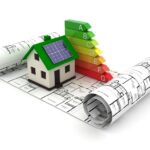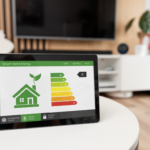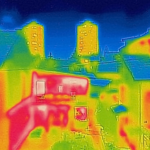The building industry is experiencing a digital revolution that’s transforming how we approach fire safety building regulations and energy performance assessments. Modern property evaluations now require sophisticated systems that combine traditional safety protocols with cutting-edge technology. Property owners and developers face an evolving regulatory landscape where fire safety assessments must work hand-in-hand with Energy Performance…
UK Building Regulations for Extractor Fans: Compliance Guide
Understanding UK building regulations for extractor fans is essential for ensuring legal compliance and maintaining healthy indoor air quality. These regulations mandate mechanical ventilation in all new kitchens and bathrooms, replacing reliance on natural airflow. For homeowners, landlords, and builders, meeting these standards helps avoid penalties and supports a healthy living environment. Since 2006, the…
How Much Does an EPC Certificate Cost in the UK?
Whether you’re a homeowner, landlord, or business owner, understanding the energy performance certificate (EPC) process is essential for improving your property’s energy efficiency and reducing energy bills. If you’re preparing to sell, rent, or even upgrade your property, you’ll likely need an EPC certificate, but how much does an EPC cost? In this guide, we’ll…
Part E Building Regulations – Explaining UK Law On Soundproofing Flats
Sound insulation is a vital part of building design, particularly in flats where multiple dwellings are located close together. The UK government introduced Part E of the Building Regulations to protect residents from excessive noise and ensure good living standards. These regulations set out mandatory standards for soundproofing between walls, floors, and ceilings, helping to…
UK Government Grants For Homeowners: What’s Available?
Homeownership can be costly, but government grants for homeowners are available to help improve energy efficiency, lower bills, and reduce carbon emissions. Funding is available for upgrades such as insulation, boiler replacements, solar panels, and heat pumps. Some schemes target low-income households, while others are open to all homeowners. Understanding which grants and funding schemes…
How To Improve Your EPC Rating: Tips for Homeowners
An Energy Performance Certificate (EPC) rates a property’s energy efficiency from A (most efficient) to G (least efficient). Improving EPC rating can help lower energy bills, increase the property’s value, and ensure compliance with rental regulations if you are a landlord. This guide outlines steps to improve your EPC rating, whether moving from E to…
What Do EPC Ratings Mean? Energy Performance Certificate Ratings Explained
If you own, buy, or rent a property in the UK, you must understand the significance of an Energy Performance Certificate (EPC) and what each rating means. This guide explains what an EPC is, defines each rating, explores property features that affect these ratings, and examines how a rating can be improved. At Falcon Energy,…
Does My Property Need Trickle Vents?
Ventilation ensures occupant health and structural durability. As buildings become more energy-efficient and airtight, the need for effective ventilation systems, like trickle vents (trickle ventilators), increases. Homeowners, builders, property managers, and anyone involved in constructing, renovating, or maintaining buildings should understand how to use them. This guide offers insights into trickle vents, their purpose, how…
Commercial Energy Performance Certificate Guide
Understanding your commercial property’s energy efficiency is more important than ever. A commercial Energy Performance Certificate (EPC) ensures compliance with UK regulations and helps reduce energy costs, improve sustainability, and enhance a property’s value. Whether buying, selling, or leasing, an up-to-date EPC is essential. This guide explains commercial EPCs, including the process, costs, and benefits….
What Is Heat Energy Efficiency?
Heat energy efficiency is important in conserving energy, reducing carbon emissions, and lowering utility bills. For homeowners and businesses alike, improving heat energy efficiency saves money on heating costs and contributes to environmental sustainability. This guide will explore exactly what heat energy efficiency means and how to identify and address inefficiencies with thermographic testing. At…












